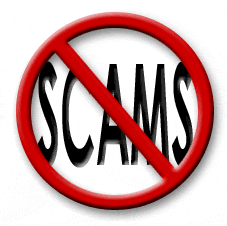Writers are constantly on the look out for ways to make writing more convenient. We have all experienced the pain of having a great idea for the story we're working on but been unable to access it because our saga has been left left at home, or on the office computer, or ...
Dropbox is a great way to keep your story a click away no matter what device you happen to be toting around. Up until recently Dropbox was the solution that stood head and shoulders above the rest but now there is a new gunslinger in town by the name of
Google Drive. * Cue cheesy western music *
Google Drive does everything Dropbox does, but costs less. Of course, since it's Google (or as I think of it nowadays: Benign Overload In Training), folks are going to have security concerns, but Nilay Patel of
The Verge says that, this time at least, Google is shooting straight with users. (Sorry, I should kill that metaphor.) He writes:
[A]ll web services should be subject to harsh scrutiny of
their privacy policies — but a close and careful reading reveals that
Google's terms are pretty much the same as anyone else's, and slightly
better in some cases. Let's take a look.
. . . .
Here's the section from Google's terms of service that's causing all the controversy today, with my emphasis in bold:
Some of our Services allow you to submit content. You retain
ownership of any intellectual property rights that you hold in that
content. In short, what belongs to you stays yours.
When you upload or otherwise submit content to our Services, you give Google (and those we work with) a worldwide license to use, host, store, reproduce, modify, create derivative works
(such as those resulting from translations, adaptations or other
changes we make so that your content works better with our Services), communicate, publish, publicly perform, publicly display and distribute such content. The rights you grant in this license are for the limited purpose of operating, promoting, and improving our Services, and to develop new ones.
That's a lot of rights to give Google, on the face of it — in fact, it's basically every right you can
give to Google as a copyright holder. But think about how limited
Google's services would be if it didn't have permission to use, host,
store, modify, communicate, publish, or distribute your content — it
couldn't move files around on its servers, cache your data, or make
image thumbnails, since those would be unauthorized copies. It couldn't
run Google Translate or Google Image Search. It would be illegal to play
YouTube clips in public. In short, Google is giving itself all the
permissions it could possibly need to run all of Google services, with
the specific limitations that it doesn't own anything you upload and it
can't use your data beyond running its services.
Google actually responded to Nilay Patel's request for comment and clarification. Gotta say, point for
Benign Overlord Google. Not many huge corporations have the PR savvy to do something like that. Here is Google's response:
As our Terms of Service make clear, "what belongs to you stays yours."
You own your files and control their sharing, plain and simple. Our
Terms of Service enable us to give you the services you want — so if you
decide to share a document with someone, or open it on a different
device, you can.
To read more of N. Patel's article click here:
Is Google Drive worse for privacy than iCloud, Skydrive, and Dropbox?
I've taken the plunge and installed Google Drive on my devices. If you're considering doing likewise--or even if you're not--here is a comparison chart of the different store-it-in-the-cloud solutions such as Dropbox and Google Drive:
This graphic is from the article,
Google Drive vs. Dropbox, SkyDrive, SugarSync, and others: a cloud sync storage face-off. It was published April 24th 2012 so it's a wee bit dated now, for instance, Google Drive has an iOS app out, but the article is still a great resource for anyone researching the different cloud solutions for storing and sharing data.
By the way, for mobile device users,
CloudOn is a great tool for editing the text documents you store in programs such as Dropbox or Google Drive. CloudOn allows you to open such documents up and edit them seamlessly.
Before I used CloudOn I would open up a Dropbox document, save it in Pages, do my edits, mail it back to myself, and then manually update the document in Dropbox. So, yes, the document was available wherever I was, but the experience wasn't what I would call
seamless. With CloudOn I just open up my document, make whatever changes I want, and they are automatically saved back to the underlying document.
Much less work.
Related articles:
-
Why Dropbox Is A Writer's Best Friend
-
Evernote: the everything app











